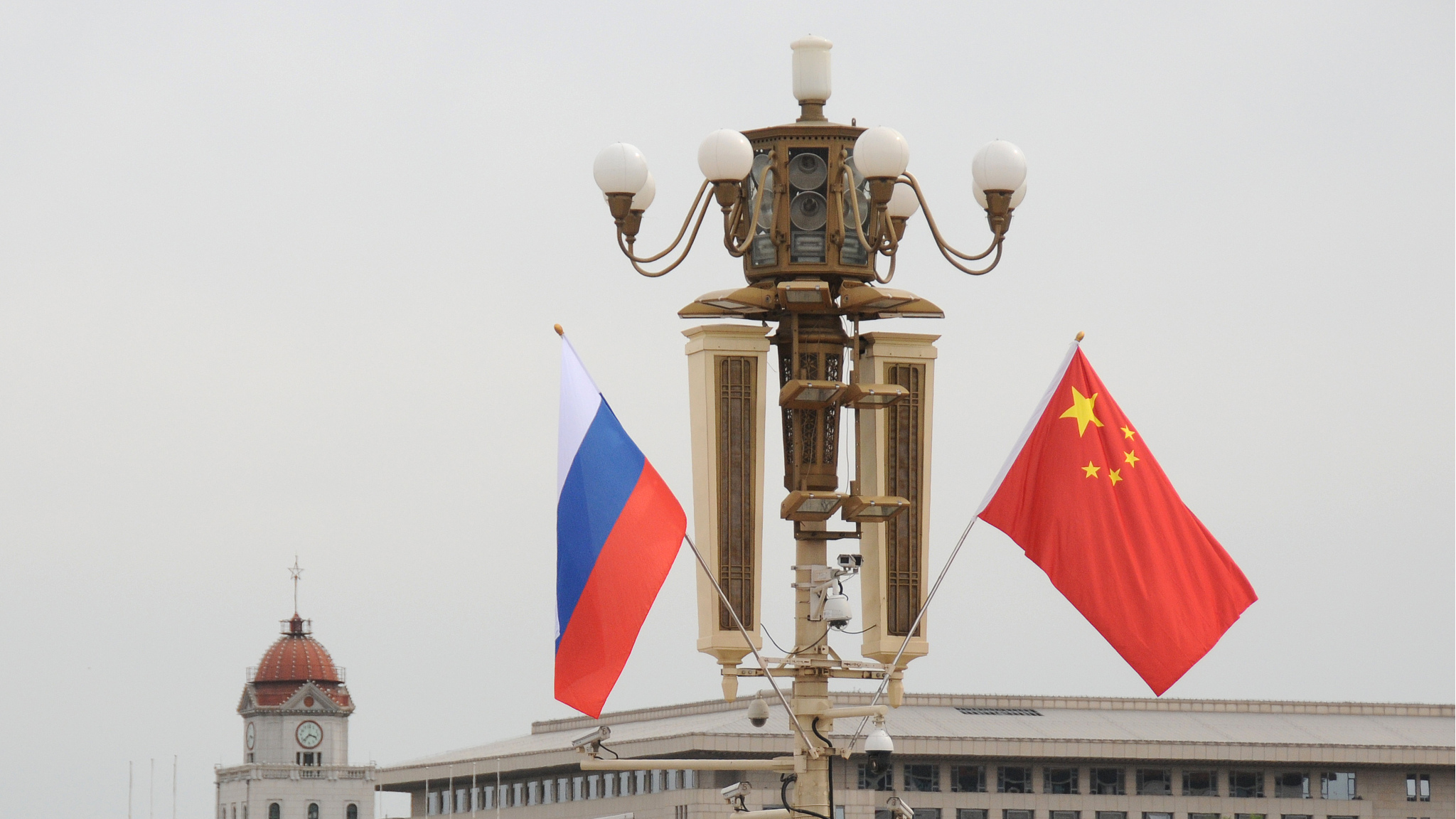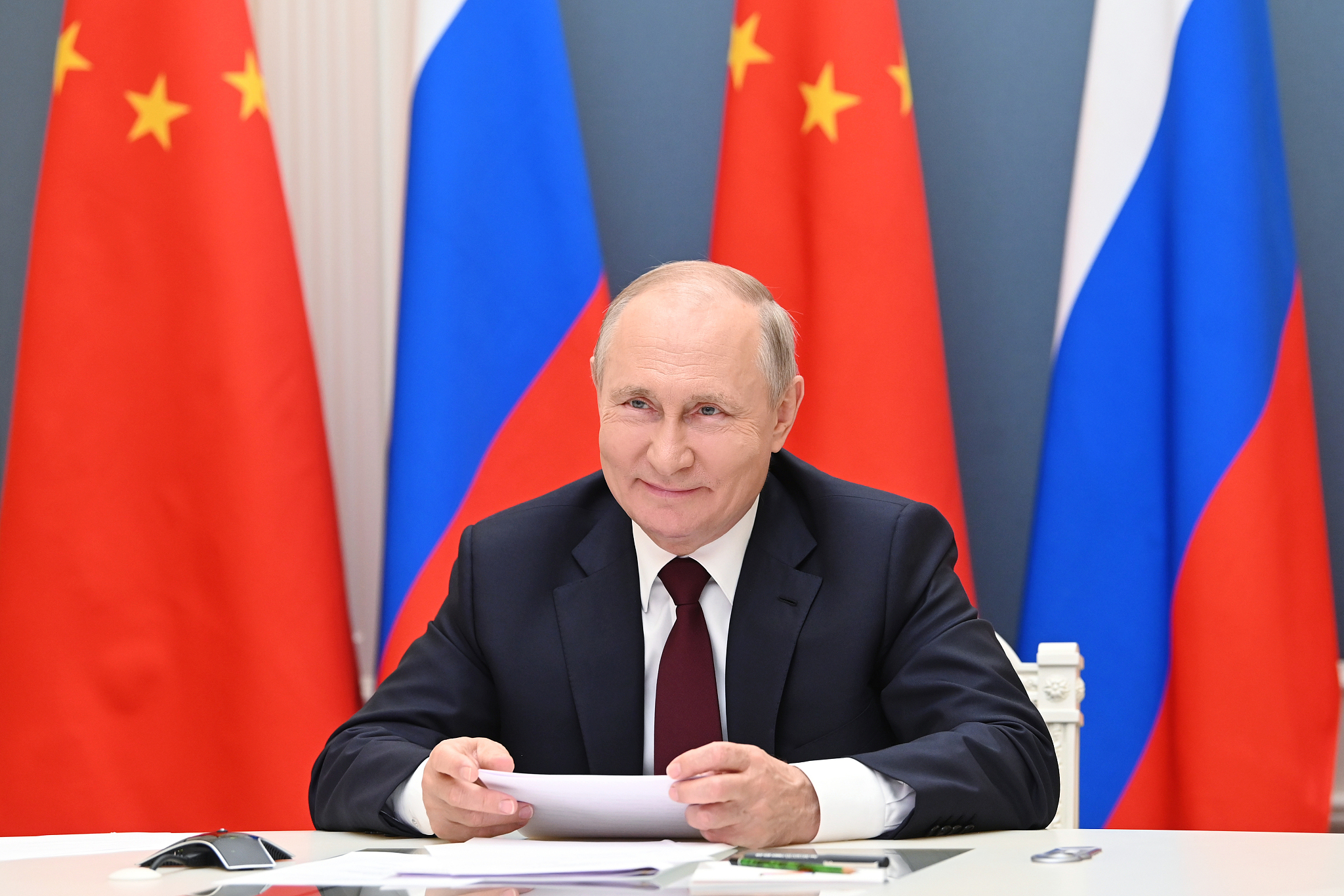
Editor's note: Andrew Korybko is a Moscow-based American political analyst. The article reflects the author's views and not necessarily those of CGTN.
Chinese President Xi Jinping and Russian President Vladimir Putin announced the extension of China-Russia Treaty of Good-neighborliness and Friendly Cooperation during a virtual meeting on July 28. This agreement can be seen in hindsight as one of the most important building blocs of the emerging multi-polar world order. It proved that great powers can pragmatically and responsibly manage relations between one another without resorting to unfriendly competition. This observation contrasts with the Western model of confrontation both within that civilizational bloc and with others.
There are several contemporary examples of Western countries competing with one another in unfriendly ways. One needs only to look at the ideological conflict between Western Europe and some Central European countries like Hungary and Poland to see that leading Western countries don't always treat their comparatively smaller partners as equals. Another excellent example was former U.S. President Donald Trump's bullying of EU and fellow NATO countries. He wanted to impose America's preferred economic and military policies onto those states against their will.
Nowadays the U.S. under incumbent President Joe Biden is trying to divide China and Russia. This policy is doomed to fail because it's predicated on an outdated model of international relations. The philosophy of zero-sum gains is irrelevant in the emerging multi-polar world order that China and Russia are jointly leading. Neither great power has any intention to undermine the others' interests. Rather, they've realized that they're stronger by working together, which they presently do across all fields. The most important of these are political, military, economic, and institutional, the latter of which is embodied by the UN, BRICS, and SCO.
Moreover, Chinese-Russian cooperation isn't aimed against any third parties unlike intra-Western cooperation and some of this civilization's outreaches to others. The first example can be seen by their recent efforts to ideologically unite as so-called "liberal democracies" in opposition to what they claim are the "autocracies" of China and Russia. This is nothing but a thinly veiled attempt to ideologically justify a new Cold War which only serves the interests of their military-industrial complexes and the political elite that invest in them. The second example is seen by their "containment"-driven military cooperation with some of China and Russia's neighbors.

Russian President Vladimir Putin. /CFP
Russian President Vladimir Putin. /CFP
By contrast, Chinese-Russian cooperation in Central Asia – especially through the Shanghai Cooperation Organization (SCO) that they and most of that region's states participate in – aims to enhance their economic potential in order to improve the living standards of each nation's populations. Their military dimension is multilateral and intended to confront the shared threats of terrorism, separatism and extremism, which becomes more pressing in the wake of the U.S. decision to withdraw its military forces from Afghanistan by September 11.
Another important point to make is that China and Russia cooperate with all like-minded countries as equals while the West only engages with others through a hierarchical model where it designates itself as their superior. This explains why China and Russia never attach any political strings to their cooperation with other countries, which is the opposite of the Western model. Those two countries also don't meddle in one another's affairs or others'. The West, however, meddles in its fellow civilizational bloc's affairs as evidenced by the two prior examples given and also, of course, never stops meddling in other countries' affairs too.
There's a reason why the Chinese-Russian model of cooperation is more appealing to the rest of the world than the West's. That's because those two countries respect everyone else as equals according to the principles enshrined in the UN Charter. The West is under the delusion of its own supremacy relative to other civilizations which is why it's incapable of treating others as equals. It's pathologically driven to dominate them instead of help them develop. The whole world has wised up to this game and is rejecting the Western model en masse, hence the West has sought to provoke a new Cold War in a desperate attempt to contain China and Russia.
(If you want to contribute and have specific expertise, please contact us at opinions@cgtn.com.)

